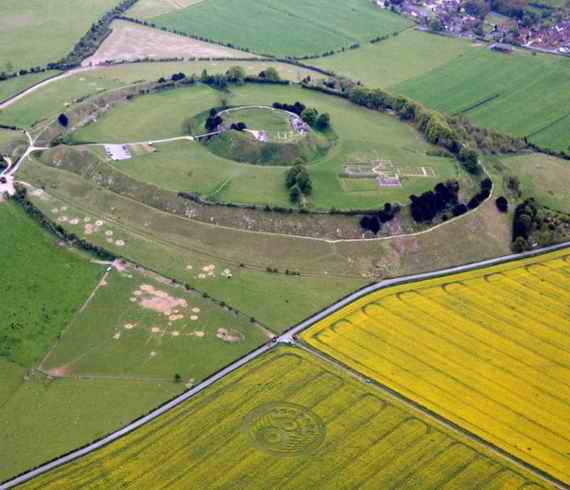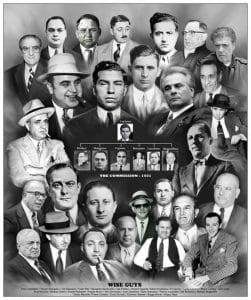Leaving our worries behind.
[spreaker type=standard width=100% autoplay=false episode_id=3622642]
There are 27 books in the New testament 39 books in the old , what is hidden in the old points to the new and the new assists in unlocking the old. 39 (3 x 9) = 27. Nine is a judgment number any number multiplied by it has a sum total that adds back to nine. It simply reveals there is no escaping the issuance of judgment. The word of G-d to the obedient is a protector. To the disobedient it is the book of judgment.
The township below was once a thriving village of old Sarum England. It was listed in the Domesday book.
Old Sarum (Latin: Sorviodunum) is the site of the earliest settlement of Salisbury, in England. The site contains evidence of human habitation as early as 3000 BC. Old Sarum is mentioned in some of the earliest records in the country. It is located on a hill about two miles north of modern Salisbury next to the A345 road.
Domesday Book (/ˈduːmzdeɪ/ or US /ˈdoʊmzdeɪ/; Latin: Liber de Wintonia) is a manuscript that records the great survey of much of England and parts of Wales completed in 1086. The survey was executed for William I of England (William the Conqueror): “While spending the Christmas time of 1085 in Gloucester, William had deep speech with his counselors and sent men all over England to each shire to find out what or how much each landholder had in land and livestock, and what it was worth” (Anglo-Saxon Chronicle).
One of the main purposes of the survey was to determine who held what and what taxes had been liable under Edward the Confessor; the judgement of the Domesday assessors was final—whatever the book said about who held the material wealth or what it was worth was the law, and there was no appeal. It was written in Latin, although there were some vernacular words inserted for native terms with no previous Latin equivalent, and the text was highly abbreviated.[3] Richard FitzNigel, writing around the year 1179, stated[4] that the book was known by the English as “Domesday”, that is the Day of Judgement:
for as the sentence of that strict and terrible last account cannot be evaded by any skilful subterfuge, so when this book is appealed to … its sentence cannot be put quashed or set aside with impunity. That is why we have called the book ‘the Book of Judgement’ … because its decisions, like those of the Last Judgement, are unalterable.
Deuteronomy 27:15-26 Cursed be the man that maketh any graven or molten image, an abomination unto the LORD, the work of the hands of the craftsman, and putteth it in a secret place. And all the people shall answer and say, Amen. (16) Cursed be he that setteth light by his father or his mother. And all the people shall say, Amen. (17) Cursed be he that removeth his neighbour’s landmark. And all the people shall say, Amen. (18) Cursed be he that maketh the blind to wander out of the way. And all the people shall say, Amen. (19) Cursed be he that perverteth the judgment of the stranger, fatherless, and widow. And all the people shall say, Amen. (20) Cursed be he that lieth with his father’s wife; because he uncovereth his father’s skirt. And all the people shall say, Amen. (21) Cursed be he that lieth with any manner of beast. And all the people shall say, Amen. (22) Cursed be he that lieth with his sister, the daughter of his father, or the daughter of his mother. And all the people shall say, Amen. (23) Cursed be he that lieth with his mother in law. And all the people shall say, Amen. (24) Cursed be he that smiteth his neighbour secretly. And all the people shall say, Amen. (25) Cursed be he that taketh reward to slay an innocent person. And all the people shall say, Amen. (26) Cursed be he that confirmeth not all the words of this law to do them. And all the people shall say, Amen.
Psalms 27:1-14 A Psalm of David. The LORD is my light and my salvation; whom shall I fear? the LORD is the strength of my life; of whom shall I be afraid? (2) When the wicked, even mine enemies and my foes, came upon me to eat up my flesh, they stumbled and fell. (3) Though an host should encamp against me, my heart shall not fear: though war should rise against me, in this will I be confident. (4) One thing have I desired of the LORD, that will I seek after; that I may dwell in the house of the LORD all the days of my life, to behold the beauty of the LORD, and to enquire in his temple. (5) For in the time of trouble he shall hide me in his pavilion: in the secret of his tabernacle shall he hide me; he shall set me up upon a rock. (6) And now shall mine head be lifted up above mine enemies round about me: therefore will I offer in his tabernacle sacrifices of joy; I will sing, yea, I will sing praises unto the LORD. (7) Hear, O LORD, when I cry with my voice: have mercy also upon me, and answer me. (8) When thou saidst, Seek ye my face; my heart said unto thee, Thy face, LORD, will I seek. (9) Hide not thy face far from me; put not thy servant away in anger: thou hast been my help; leave me not, neither forsake me, O G-d of my salvation. (10) When my father and my mother forsake me, then the LORD will take me up. (11) Teach me thy way, O LORD, and lead me in a plain path, because of mine enemies. (12) Deliver me not over unto the will of mine enemies: for false witnesses are risen up against me, and such as breathe out cruelty. (13) I had fainted, unless I had believed to see the goodness of the LORD in the land of the living. (14) Wait on the LORD: be of good courage, and he shall strengthen thine heart: wait, I say, on the LORD.






